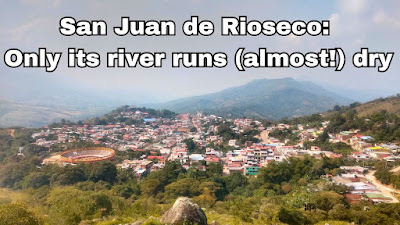[For an audio/vlog version of this story, click here.]
For native English speakers of the Old World, namely inhabitants of Britain and (whisper it) Ireland, it can be hard to accept that our New World ancestors have better language conventions than us. For some things, that is.
 |
| USA: Home of the brave. And home of the useful Oxford comma, too. |
Team of us
In terms of consistency, the British English tendency to use plurals when referring to a team is difficult if not impossible to defend grammatically.Taking the current English Premier League champions as an example, Manchester City is a team. Yet, we English speakers in Britain and Ireland almost always refer to the team using are, as in 'Manchester City are the champions of Europe.' It sounds weird to us to say 'Manchester City is the champion of Europe.' (I am aware that for those who favour the red half of Manchester, neither form is acceptable. What's more, as I write this blog, City's Champions League defence has come a cropper.)
I recall reading US newspapers, particularly the sports sections, during my first visit to the States, aged 15, and feeling that there was something amiss. The use of the singular for a team didn't seem right for somebody brought up on plural constructions for such an entity. It felt a bit cold and impersonal. A team is made up of people, after all.
It is, however, the Yanks who are on firmer ground if one strictly adheres to grammar rules. The team-is-made-up-of-people defence is understandable yet the idea of a team is that it works as a unit. (As the rather goody-two-shoes remark goes, 'There's no 'I' in team'. The equally inane retort is, 'But there is a me.')
Were 'Is a team' to go up against 'Are a team' in a grammar court, the former would surely win out. But hey, one doesn't tend to have much fun in court.
Clarity contest
In a clarity context, nay contest, US English tends to favour the use of the Oxford/serial comma.In my school days, I was repeatedly told that it was wrong to place a comma before the 'and' in a sentence containing a list of items of three or more things. England, Ireland, Scotland and Wales — correct. England, Ireland, Scotland, and Wales — incorrect.
One could say such a rule is rather insignificant. It matters little whether the comma is there or not. And for the minimalists amongst us, as I am, excluding it makes more sense. Fewer commas means less ink required in printing. Every little helps.
'Rather than being doctrinaire against the use of the Oxford comma, those of us brought up to obediently omit it should be open to its vital value.'However, the Oxford comma is not a case of Yankee extravagance. It does serve an important purpose. Its omission can lead to much confusion.
To take from Steven Pinker's impressive and witty The Sense of Style: The Thinking Person's Guide to Writing in the 21st Century, consider the following:
'This book is dedicated to my parents, Ayn Rand and God.'
'Highlights of Peter Ustinov’s global tour include encounters with Nelson Mandela, an 800-year-old demigod and a dildo collector.'
The lack of a comma before the 'and' in those sentences can lead to confusion (even in speech, with that absent comma, one may be inclined to leave out a helpful pause between the last two items). Thus, Nelson Mandela had a more colourful, far-reaching past, than most of us had realised. And the author of the book referred to has some powerful parents — or at least one of them is omnipotent.
So rather than being doctrinaire against the use of the Oxford comma, those of us brought up to obediently omit it should be open to its vital value.
Period pain
While we're on comma ground, one US convention — in academia in any case — that doesn't seem to have much logic behind it is the inclusion of a comma after 'i.e.'. What clarity does it provide? (I find some of American English's quotation-mark punctuation guidelines rather illogical, too.)It's the same for Americans' use of full stops, or periods as they say, after each letter in an initialism. Why not USA rather than U.S.A.? It's superfluous punctuation, particularly when the actual words must be said together to make proper sense.
Sticking with period punctuation, I prefer the style choice more common in British English where there's no full stop placed after an abbreviation that starts with the abbreviated word's first letter and ends with its last. So it's Mr and Mrs for me, full-stop free.
However, abbreviations that don't end with the final letter of the word get a full stop. For example, co. for company (or county) and inc. for incorporation.
Most of these differences are matters of style. My general approach is if a certain rule serves no obvious, helpful purpose, then there's no need to use it, particularly when there's a viable, comprehensible alternative.
As we've seen with the Oxford comma, though, opting for less punctuation isn't always the best strategy. Nonetheless, old habits die hard. I still feel like I'm committing a violation if I use it.
When it comes to using plural forms for a team, its everyday use in British English has led to its acceptance. Through dedication and repetition, Team GB have won the right to say it makes sense.
__________________________________________________________
Listen to The Corrigan Cast podcast here.
Facebook: Wrong Way Corrigan — The Blog & IQuiz "The Bogotá Pub Quiz".



.jpg)
.jpg)


